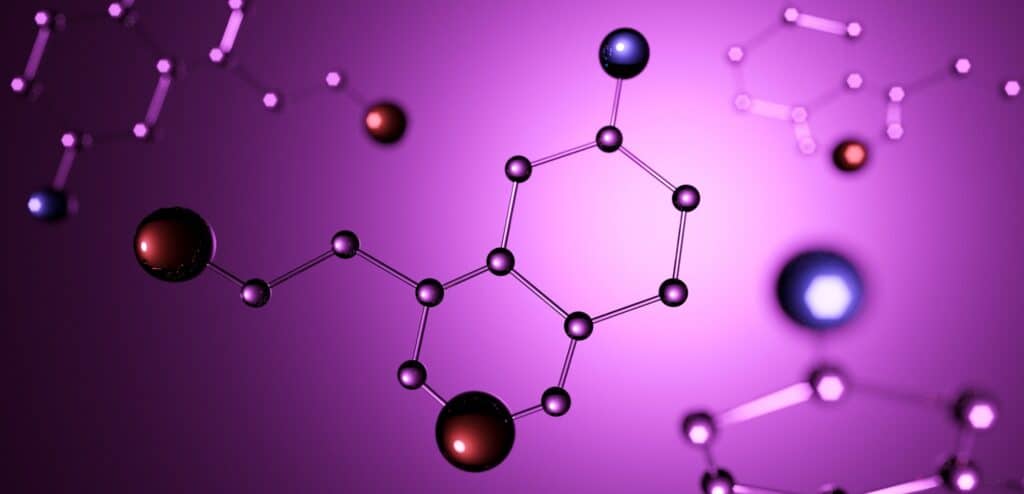Hormone optimization is not just a trendy term; it’s a fundamental aspect of achieving peak health and vitality. Our body’s hormones act as messengers, orchestrating countless processes that keep us functioning optimally. However, imbalances or deficiencies in these crucial chemicals can lead to a myriad of health issues. In this blog post, we’ll delve into the significance of hormone optimization and explore how it holds the key to unlocking a healthier, more vibrant life.
Understanding Hormones: The Body’s Chemical Messengers
Hormones are intricate chemical messengers produced by various glands throughout the body, including the thyroid, adrenal glands, pancreas, and reproductive organs. These messengers travel through the bloodstream, regulating essential bodily functions such as metabolism, growth, reproduction, and mood. Understanding the role of hormones is crucial because they play a significant part in maintaining overall health and well-being. By comprehending how hormones work and interact with one another, individuals can better appreciate the importance of hormonal balance in achieving optimal health.
The Importance of Hormone Balance for Health
Hormone balance is vital for overall health and well-being. When hormones are in harmony, the body functions optimally, supporting physical, emotional, and mental health. However, hormonal imbalances can disrupt this delicate equilibrium, leading to a wide range of health issues. These may include weight gain, mood swings, fatigue, reproductive problems, and more. Achieving and maintaining hormone balance through proper nutrition, stress management, adequate sleep, and regular exercise is essential for promoting longevity and vitality.
Common Hormonal Imbalances and Their Effects
Hormonal imbalances can manifest in various ways, depending on the specific hormones involved and the severity of the imbalance. Some common hormonal imbalances include thyroid disorders, insulin resistance, estrogen dominance, and testosterone deficiency. Each imbalance can result in a distinct set of symptoms, ranging from fatigue and weight gain to mood swings and reproductive issues. Identifying these imbalances early and addressing them through targeted interventions is crucial for restoring hormonal balance and improving overall health.
Symptoms of Hormonal Deficiencies and Excesses
Hormonal deficiencies and excesses can produce a wide array of symptoms that affect physical, emotional, and mental well-being. For example, thyroid hormone deficiency may cause fatigue, weight gain, and cold intolerance, while excess cortisol from chronic stress can lead to anxiety, insomnia, and weight gain around the midsection. Recognizing these symptoms and understanding their underlying hormonal imbalances is essential for guiding appropriate treatment strategies and restoring hormonal equilibrium.
How Hormone Optimization Enhances Vitality
Hormone optimization involves achieving and maintaining optimal levels of hormones to support overall health and vitality. When hormones are balanced, individuals experience increased energy, improved mood, better cognitive function, enhanced libido, and overall well-being. By optimizing hormone levels through lifestyle modifications, dietary changes, and, if necessary, medical interventions, individuals can unlock their full potential and enjoy a higher quality of life.
The Role of Hormones in Regulating Metabolism
Hormones play a crucial role in regulating metabolism, the process by which the body converts food into energy. Hormones such as insulin, thyroid hormones, and leptin help control appetite, energy expenditure, and fat storage. Imbalances in these hormones can lead to metabolic dysfunction, resulting in weight gain, insulin resistance, and other metabolic disorders. Understanding the role of hormones in metabolism is essential for managing weight and promoting metabolic health.
Hormones and Their Impact on Mood and Mental Health
Hormones exert a significant influence on mood and mental health. Imbalances in hormones such as serotonin, dopamine, cortisol, and estrogen can contribute to mood disorders such as depression, anxiety, and irritability. Additionally, hormonal fluctuations during puberty, pregnancy, and menopause can affect emotional well-being. By addressing hormonal imbalances through lifestyle modifications, therapy, and, if necessary, medication, individuals can improve their mood and mental health.
Hormonal Changes Throughout Life: From Adolescence to Menopause
Hormonal changes occur throughout life, from adolescence to menopause and beyond. Puberty is characterized by dramatic hormonal shifts, leading to physical and emotional changes. During adulthood, hormone levels fluctuate in response to factors such as stress, pregnancy, and aging. Menopause marks the end of reproductive hormone production in women, leading to symptoms such as hot flashes, mood swings, and changes in libido. Understanding these hormonal changes and their effects can help individuals navigate different stages of life more effectively.
The Connection Between Hormones and Weight Management
Hormones play a crucial role in weight management by regulating appetite, metabolism, and fat storage. Imbalances in hormones such as insulin, leptin, ghrelin, and cortisol can contribute to weight gain and obesity. By addressing hormonal imbalances through dietary changes, exercise, and stress management techniques, individuals can achieve sustainable weight loss and improve metabolic health.
Hormonal Influences on Sleep Quality and Energy Levels
Hormones exert profound influences on sleep quality and energy levels, orchestrating the delicate balance between wakefulness and rest. Melatonin, known as the “sleep hormone,” regulates the body’s circadian rhythm, promoting relaxation and inducing sleep. Conversely, cortisol, the primary stress hormone, plays a role in maintaining wakefulness and alertness during the day.
Thyroid hormones influence metabolism and energy production, affecting overall vitality. Disruptions in these hormonal pathways can lead to sleep disturbances, fatigue, and diminished cognitive function. By adopting healthy sleep hygiene practices and addressing underlying hormonal imbalances through lifestyle modifications, individuals can optimize their hormone levels and enjoy restorative sleep, leading to increased energy levels and enhanced well-being.
Strategies for Hormone Optimization: Diet and Lifestyle Factors
Strategies for hormone optimization encompass a holistic approach, integrating dietary and lifestyle adjustments to support hormonal balance and overall well-being. A balanced diet, abundant in nutrient-dense foods such as fruits, vegetables, lean proteins, and healthy fats, provides essential nutrients for hormone synthesis and regulation.
Regular physical activity promotes hormonal balance by reducing insulin resistance and supporting metabolism. Stress management techniques, including meditation and deep breathing exercises, help mitigate cortisol levels, while prioritizing adequate sleep fosters hormonal equilibrium. By embracing these strategies consistently, individuals can cultivate a harmonious hormonal environment and enhance their quality of life.
Medical Interventions for Hormone Imbalances
Medical interventions for hormone imbalances encompass a spectrum of treatments tailored to individual needs. Hormone replacement therapy (HRT) replenishes deficient hormones with synthetic or bioidentical alternatives to alleviate symptoms and restore balance. Medications may target specific hormone receptors or pathways to regulate hormone levels effectively.
In severe cases, surgical procedures like thyroidectomy or oophorectomy may be necessary to address underlying conditions. Collaborating with a knowledgeable healthcare provider ensures personalized care, monitoring, and adjustment of treatment plans to optimize outcomes while prioritizing safety and well-being.
Natural Approaches to Hormone Optimization
Natural approaches to hormone optimization emphasize the body’s innate ability to restore balance and vitality through holistic methods. Lifestyle modifications, such as regular exercise and adequate sleep, help regulate hormone production and promote overall well-being. Dietary changes, including consuming nutrient-rich foods and minimizing processed ingredients, provide essential building blocks for hormone synthesis.
Additionally, holistic therapies like acupuncture and meditation can alleviate stress and enhance hormonal harmony. While individual responses vary, integrating these natural approaches into daily life can empower individuals to optimize hormone levels and foster lasting health and vitality.
Hormone Testing: Understanding Your Body’s Signals
Hormone testing offers a comprehensive snapshot of the body’s hormonal landscape, allowing healthcare providers to pinpoint specific imbalances and tailor treatment accordingly. Blood tests measure hormone levels directly from the bloodstream, providing precise data on hormone concentrations.
Saliva tests assess free, biologically active hormones, while urine tests offer insights into hormone metabolites and excretion patterns. By collaborating with a skilled healthcare provider experienced in hormone health, individuals can interpret test results accurately and embark on personalized treatment journeys to restore hormonal balance and optimize overall well-being.
Potential Risks of Hormone Replacement Therapies
In addition to the risks mentioned above, hormone replacement therapies may also lead to other adverse effects such as mood swings, bloating, headaches, and breast tenderness. Furthermore, the dosage and duration of hormone therapy can influence the likelihood of experiencing these side effects.
It’s crucial for individuals undergoing hormone replacement therapy to undergo regular monitoring and evaluation by their healthcare provider to minimize risks and ensure optimal outcomes. Open communication and informed decision-making are key in navigating hormone replacement therapy safely and effectively.
Achieving Long-Term Health Through Hormone Optimization
Hormone optimization is not just about addressing immediate symptoms; it’s about promoting long-term health and vitality. By optimizing hormone levels through lifestyle modifications, dietary changes, and, if necessary, medical interventions, individuals can support their body’s natural processes and reduce the risk of chronic diseases. Investing in hormone optimization today can lead to a healthier, more vibrant future tomorrow.
Hormone Optimization truly stands as the cornerstone of enhanced health and vitality. At ActiveMed Integrative Health Center in Encinitas, we’re committed to guiding you on this transformative journey towards optimal well-being. Our holistic approach combines cutting-edge medical expertise with personalized care to address your unique needs.
Whether you’re struggling with hormonal imbalances or seeking to maximize your health potential, our team is here to support you every step of the way. Contact us today at 858-673-4400 or email info@activemedhealth.com to schedule your consultation. Take the first step towards a healthier, more vibrant life with hormone optimization at ActiveMed.




